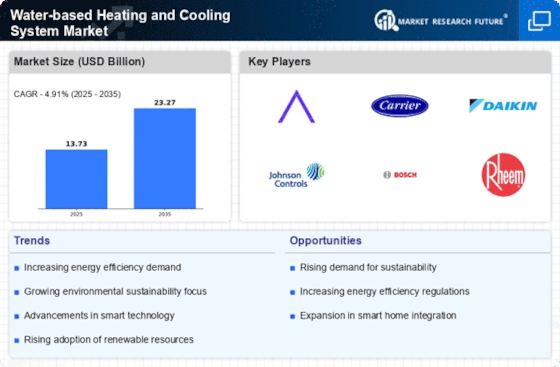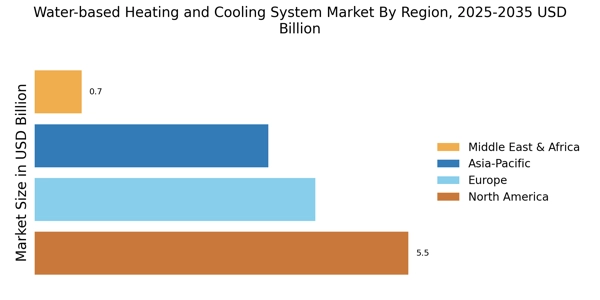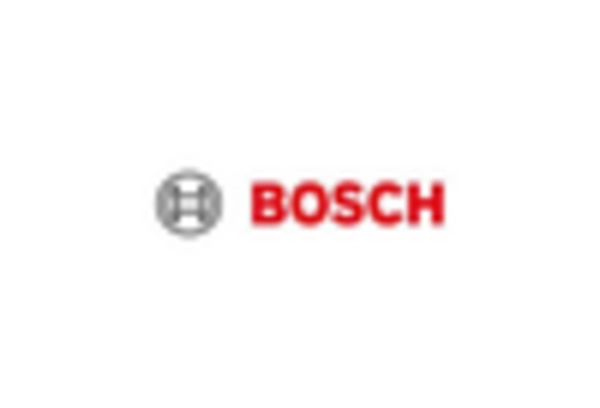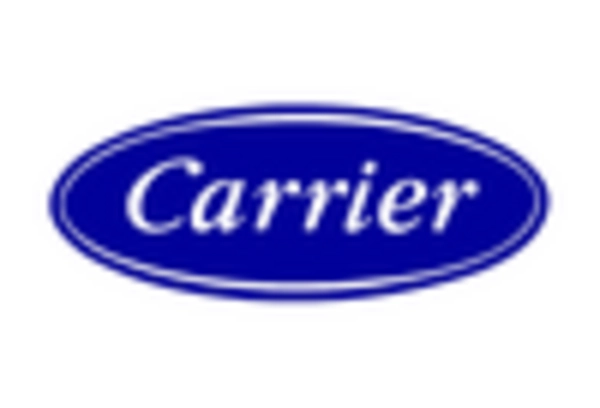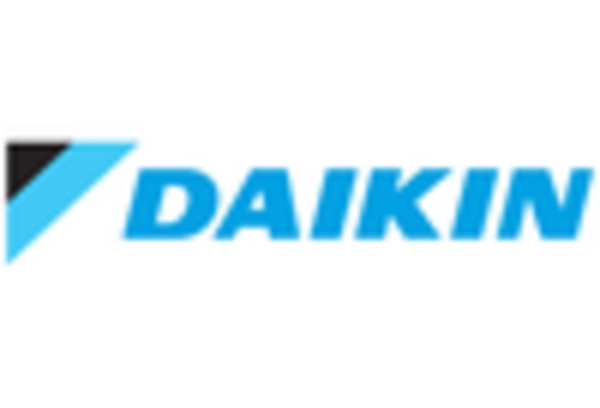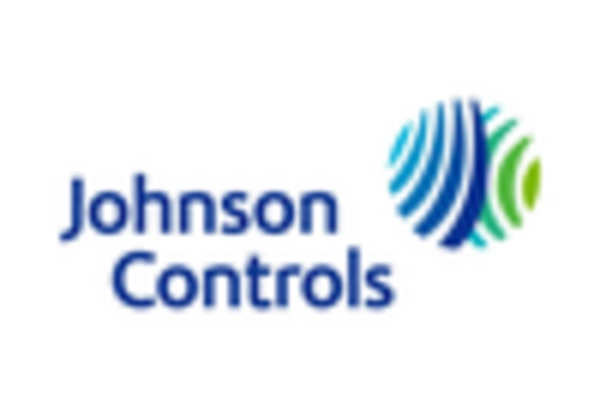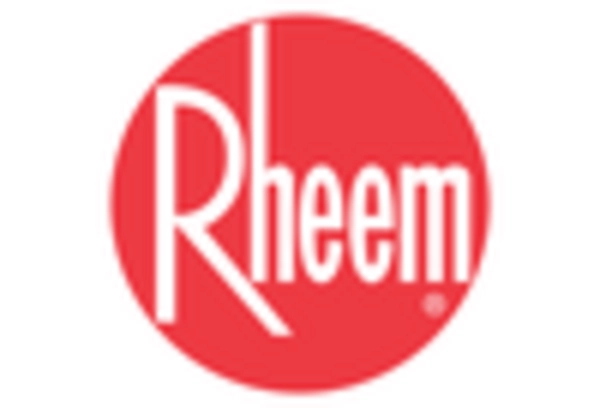Government Incentives and Rebates
Government incentives and rebates are significantly influencing the Water-based Heating and Cooling System Market. Many governments are implementing programs to encourage the adoption of energy-efficient technologies, including water-based heating and cooling systems. These incentives often take the form of tax credits, rebates, or grants, making it more financially viable for consumers and businesses to invest in these systems. Recent reports indicate that regions offering such incentives have seen a 20% increase in the installation of water-based systems. This trend not only stimulates market growth but also aligns with broader energy efficiency goals. As more consumers take advantage of these programs, the Water-based Heating and Cooling System Market is poised for substantial growth, reflecting the positive impact of government support on market dynamics.
Increased Construction Activities
The Water-based Heating and Cooling System Market is benefiting from increased construction activities across various sectors. As urbanization continues to rise, there is a growing need for efficient heating and cooling solutions in residential, commercial, and industrial buildings. New construction projects are increasingly incorporating water-based systems due to their energy efficiency and environmental benefits. According to recent data, the construction sector is projected to grow at a rate of 5% annually, which directly correlates with the demand for water-based heating and cooling systems. This trend suggests that as more buildings are constructed, the Water-based Heating and Cooling System Market will likely see a corresponding increase in market opportunities, driven by the need for modern, efficient systems.
Rising Energy Efficiency Standards
The Water-based Heating and Cooling System Market is experiencing a notable shift towards enhanced energy efficiency standards. Governments and regulatory bodies are increasingly mandating stricter energy performance criteria for heating and cooling systems. This trend is driven by the need to reduce energy consumption and greenhouse gas emissions. As a result, manufacturers are compelled to innovate and develop systems that not only meet but exceed these standards. The market for energy-efficient water-based systems is projected to grow significantly, with estimates suggesting a compound annual growth rate of over 7% in the coming years. This growth is indicative of a broader commitment to sustainability and energy conservation, positioning the Water-based Heating and Cooling System Market as a key player in the transition towards greener technologies.
Growing Demand for Sustainable Solutions
The Water-based Heating and Cooling System Market is witnessing a surge in demand for sustainable solutions. As environmental awareness grows, consumers and businesses alike are seeking systems that minimize their carbon footprint. Water-based systems, known for their lower energy consumption and reduced emissions, are increasingly favored over traditional heating and cooling methods. This shift is supported by various initiatives aimed at promoting sustainable building practices and energy-efficient technologies. Market data indicates that the demand for eco-friendly heating and cooling solutions is expected to increase by approximately 15% over the next five years. This trend not only reflects changing consumer preferences but also highlights the Water-based Heating and Cooling System Market's potential to contribute to a more sustainable future.
Technological Advancements in System Design
Technological advancements are playing a pivotal role in shaping the Water-based Heating and Cooling System Market. Innovations such as variable refrigerant flow systems, advanced heat exchangers, and smart thermostats are enhancing the efficiency and performance of water-based systems. These technologies not only improve energy efficiency but also provide users with greater control over their heating and cooling needs. The integration of IoT and smart home technologies is further driving this trend, allowing for remote monitoring and management of systems. As consumers increasingly seek convenience and efficiency, the demand for technologically advanced water-based systems is expected to rise. Market analysts project that the adoption of these technologies could lead to a 10% increase in market share for water-based systems by 2026, underscoring the importance of innovation in the Water-based Heating and Cooling System Market.

